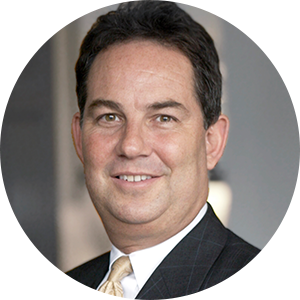Navigating clients through the regulations, zoning ordinances, permitting and other legal matters needed to bring development projects to fruition.
Contact Us
Phillips Lytle has one of the leading Land Use, Permitting and Zoning practices in New York State and has been instrumental in obtaining local land use and other regulatory approvals and permits that have transformed the landscape across New York State.
We have appeared before hundreds of land use agencies across the State and conducted numerous, important land use litigation. We take great pride in remaining on the cutting edge of new legal developments in land use planning to assure effective representation of our clients in an increasingly regulated environment. We are especially adept at expediting complex and controversial land development, including mixed-use urban development, commercial, e-commerce and industrial projects; and navigating the various federal, state, county and local land use regulations to streamline the development process. Our clients rely on our solution-driven approach to advance innovative projects, such as smart growth and transit-oriented development and to tackle complex legal issues, such as vested rights and incentive zoning.
We assist a variety of clients from small property owners to Fortune 500 companies. We help our clients obtain any approvals that may be required under applicable zoning regulations, including site plan approval; special, restricted and conditional use permits; area and use variances; site rezoning and text amendments; and/or cluster and planned unit developments approval. Because of our years of experience managing complex development matters that require numerous land use regulation permits or approvals from many federal, state and local regulatory agencies and/or significant community opposition, we emphasize:

Successfully managing all aspects of complex development matters
Phillips Lytle has decades of experience assisting clients with matters involving the New York State Department of Environmental Conservation (NYSDEC) across New York. Without skilled counsel, the NYSDEC permitting process can delay even the most sophisticated projects. Our expertise includes identifying permits needed for projects, assisting clients with preparing applications to NYSDEC, spearheading communications with NYSDEC to ensure expedited permit processing, and helping to resolve regulatory enforcement actions.
Our team has assisted in obtaining permits and approvals such as:
In addition, our team has assisted clients in resolving regulatory enforcement actions initiated by NYSDEC (notices of violation and stop work orders) in an efficient, timely manner.
Phillips Lytle counsels project sponsors and agencies through the Section 14.09 and Section 106 consultation processes with New York’s Office of Parks, Recreation and Historic Preservation (sometimes called the State Historic Preservation Office or SHPO). Such consultation is required for various state or federal permitting actions and can be particularly challenging whenever development projects implicate historic, archeological or cultural resources. We know how to work closely with project sponsors, SHPO, and key stakeholders, including consultation with Indigenous Nations.
We coordinate with our clients’ experts and consultants throughout the SHPO review process to prepare reports, conduct studies such as Phase 1A/1B, Phase 2 and Phase 3 archaeological studies, and develop alternatives analyses for timely and efficient responses to SHPO’s project comments and findings letters. Our skillful practice team works to obtain No Impact Letters, and archeological and historical resource clearances whenever necessary. In addition, our team has extensive experience with negotiating Letters of Resolution and Programmatic Agreements to facilitate projects with adverse impacts to historical or cultural resources.
Phillips Lytle helps guide clients through the often complex permitting process with the U.S. Army Corps of Engineers Section 404 of the Federal Water Pollution Control Act, commonly referred to as the Clean Water Act, which provides jurisdiction over discharges into navigable waters or “waters of the United States.” We have a deep and comprehensive understanding of Section 404, including preliminary jurisdictional determinations, wetland avoidance and alternatives analysis, and minimization and mitigation requirements. We also have extensive experience with Section 401 water quality certifications from NYSDEC.
Phillips Lytle understands the complexities of preserving, restoring, rehabilitating or, when necessary, demolishing structures of local significance. We have appeared before local preservation boards throughout New York State and have helped project sponsors obtain certificates of appropriateness, certificates of no effect and certificates of exception. We work closely with project sponsors, our clients’ experts, local government and key stakeholders to facilitate projects where the alteration or demolition of a local landmark or a structure located in a historic district is required.
Our attorneys work with clients at all stages of project development to achieve compliance with the New York State Uniform Fire Prevention and Building Code. In this capacity, our team frequently works with outside contractors and consultants to identify potential compliance issues and help craft a workable solution for the project, including by leveraging relationships with staff at the Department of State, Division of Building Standards and Codes to obtain Uniform Code interpretations and fully understand the applicable requirements.
Often times, particularly for large, complex projects, especially those with innovative designs, it is very difficult and costly to meet all code requirements. This is where the code variance process can be a significant benefit. For projects where strict compliance with the Uniform Fire Prevention and Building Code cannot be achieved, our team has significant experience successfully presenting variance applications to the Department of State, Division of Building Standards and Codes, and Regional Boards of Review across the State.
Phillips Lytle has extensive experience in coordinating zoning reviews with Environmental Impact Reviews pursuant to the State Environmental Quality Review Act (SEQRA) and National Environmental Policy Act (NEPA). Please visit SEQRA and Environmental Impact Review to learn more.
Learn More



















Receive firm communications, legal news and industry alerts delivered to your inbox.
Subscribe Now
